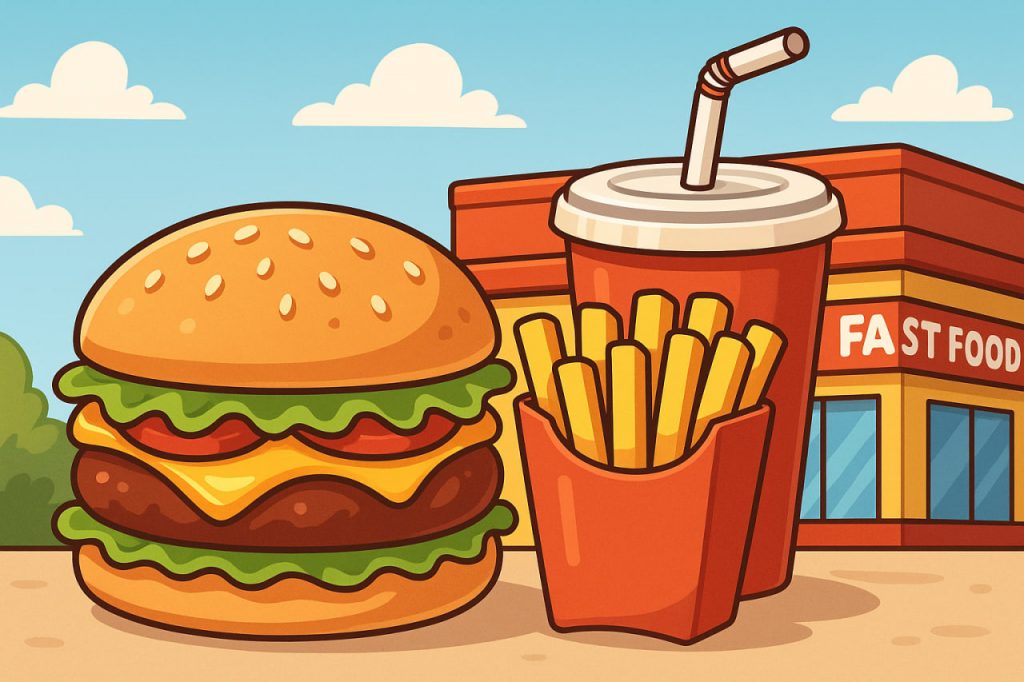Fast food refers to meals prepared and served quickly, usually in restaurants, takeaways, or drive-thrus. It is designed for convenience, affordability, and speed, which is why millions of people consume it daily across the world. Regular consumption of fast food has been linked to negative effects on human health.
What Is Fast Food?
Fast food includes items such as burgers, fries, fried chicken, pizza, hot dogs, sandwiches, and sweetened soft drinks. These foods are typically rich in calories, sugar, salt, and unhealthy fats, while often lacking in vitamins, fiber, and essential nutrients. They are usually mass-produced and standardized, making them consistent and easy to prepare.
Why Is Fast Food Popular?
- Convenience – it saves time in preparation and eating.
- Low price – affordable compared to home-cooked meals in many cases.
- Taste – often enhanced with salt, sugar, and flavorings.
- Availability – fast food chains operate almost everywhere.
- Marketing appeal – strong branding and advertising attract both adults and children.
Health Risks of Fast Food
Frequent consumption of fast food can negatively impact health in several ways:
- Obesity – due to high calorie and fat content.
- Heart disease – linked to saturated and trans fats, as well as high sodium levels.
- Diabetes type 2 – associated with sugary drinks and refined carbs.
- Digestive problems – low fiber content leads to poor gut health.
- Nutrient deficiencies – lack of vitamins, minerals, and antioxidants.
Can Fast Food Be Less Harmful?
Some chains have started offering healthier alternatives, such as salads, grilled chicken, or whole-grain bread. Choosing water instead of soda and smaller portions can also reduce harm. However, health experts recommend limiting fast food overall and focusing on home-cooked meals rich in vegetables, fruits, and whole grains.
Conclusion
Fast food can be an occasional indulgence, but it should not replace balanced, nutrient-rich meals. While convenient, it carries risks when consumed regularly, contributing to obesity, cardiovascular disease, and metabolic disorders. Making conscious food choices is crucial for long-term health.
Glossary
- Saturated fats – fats that may raise cholesterol and increase the risk of heart disease.
- Trans fats – artificial fats harmful to cardiovascular health.
- Refined carbs – carbohydrates stripped of fiber and nutrients (e.g., white bread, fries).
- Nutrient deficiency – lack of essential vitamins or minerals in the body.
- Obesity – excessive fat accumulation that poses health risks.


